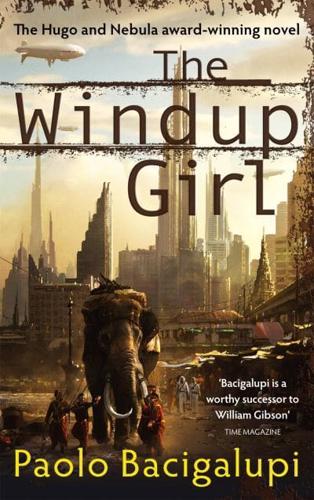Publisher's Synopsis
WINNER OF THE HUGO, NEBULA, LOCUS, JOHN W. CAMPBELL AND COMPTON CROOK AWARDS
The Windup Girl is the ground-breaking and visionary modern classic that swept the board for every major science fiction award it its year of publication.
Anderson Lake is a company man, AgriGen's calorie representative in Thailand. Under cover as a factory manager, he combs Bangkok's street markets in search of foodstuffs long thought to be extinct. There he meets the windup girl - the beautiful and enigmatic Emiko - now abandoned to the slums. She is one of the New People, bred to suit the whims of the rich. Engineered as slaves, soldiers and toys, they are the new underclass in a chilling near future where oil has run out, calorie companies dominate nations and bio-engineered plagues run rampant across the globe.
And as Lake becomes increasingly obsessed with Emiko, conspiracies breed in the heat and political tensions threaten to spiral out of control. Businessmen and ministry officials, wealthy foreigners and landless refugees all have their own agendas. But no one anticipates the devastating influence of the Windup Girl.
Discover the multi-award winning The Windup Girl: both a heart-stopping dystopian thriller and a razor-sharp vision of our near future.
'Bacigalupi is a worthy successor to William Gibson' Time Magazine
'An astounding novel' Interzone
'Not since William Gibson's pioneering cyberpunk classic, NEUROMANCER (1984), has a first novel excited science fiction readers as much' The Washington Post
'An exciting story about industrial espionage, civil war, and political struggle, filled with heart-thudding action sequences' Cory Doctorow
'Clearly one of the finest science fiction novels of the year' Publishers Weekly (starred review)
'It's ridiculous how good this book is' Techland
'Postmodern Bangkok springs to life in Bacigalupi's brilliant dystopian tale of culture clash, recalling the best of China Mieville and Neal Stephenson' Library Journal
'The pace of the book is fast and relentless. It is a dark vision . . . As a portrait of a world far from our own but not unrecognisably so, it is finely done' Times Literary Supplement











